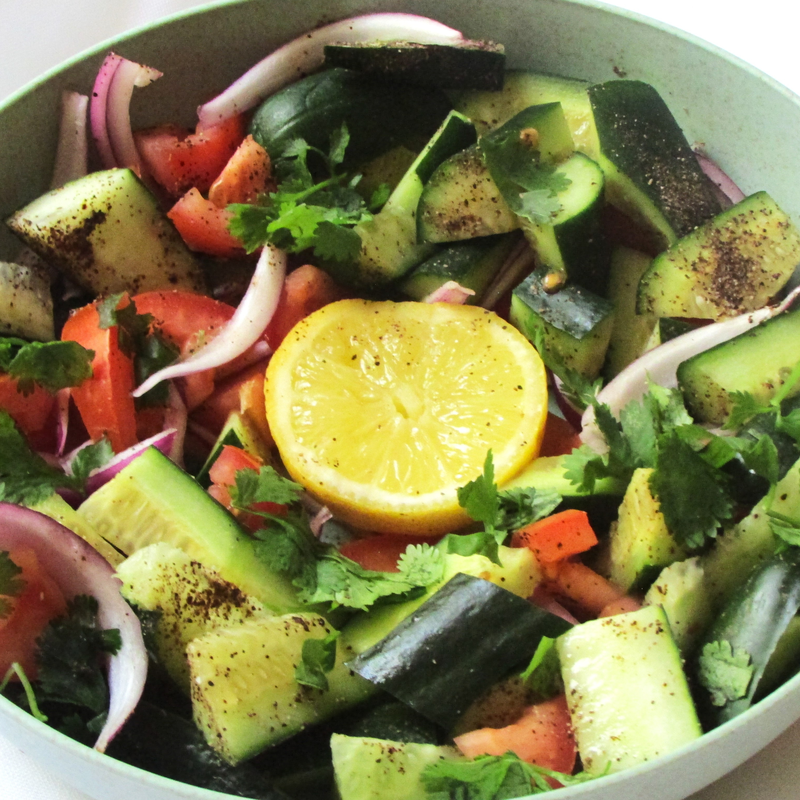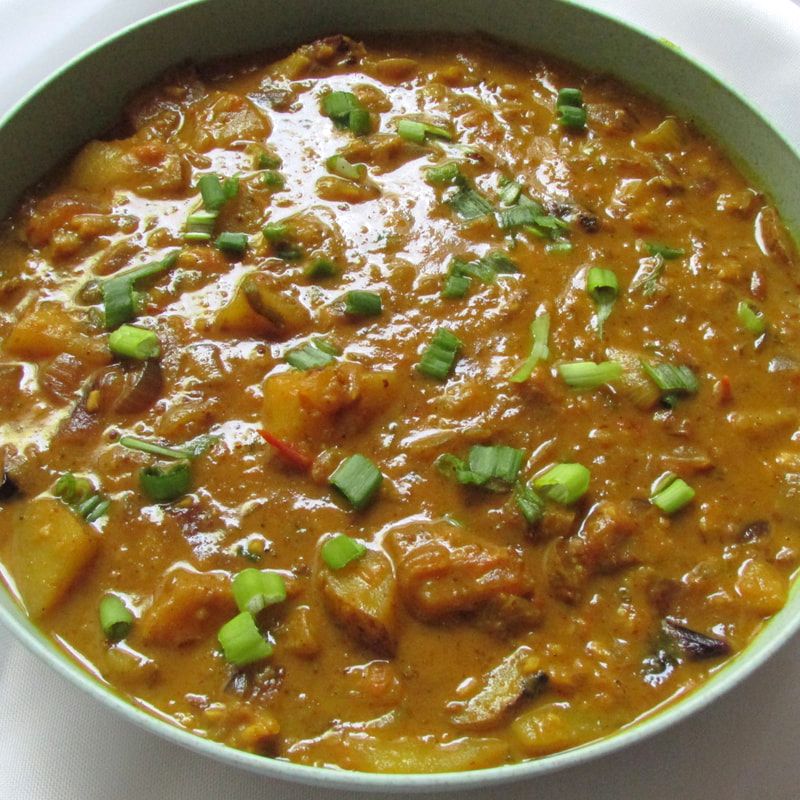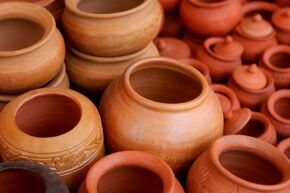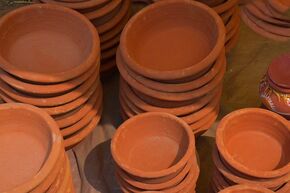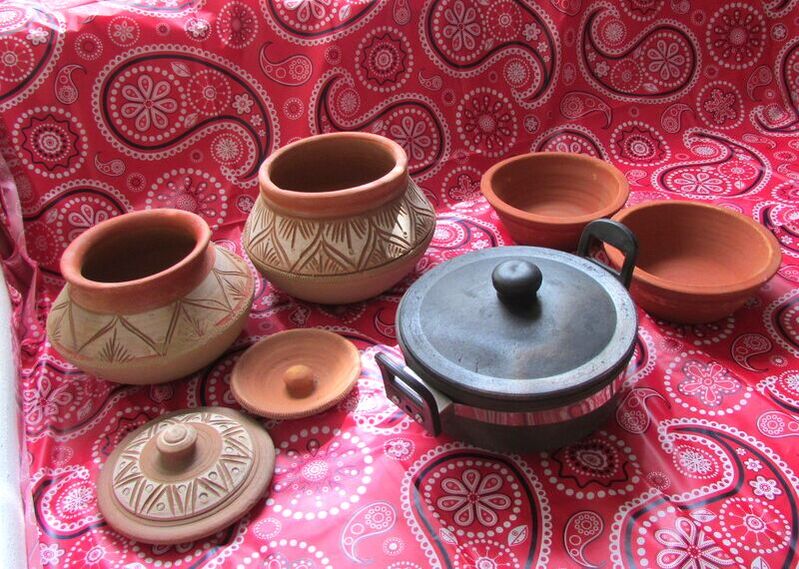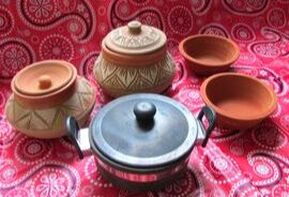|
According to Ayurveda, wrong food combinations can lead to many diseases and even death. What are these wrong food combinations per Ayurveda? Find out in this article. We all want to eat healthy and live a vigorous, long life that is rich in vitality and good moments. But did you know that even healthy foods can be toxic to your body if taken in wrong combinations? Yes! That is exactly true - find out today what these wrong food combinations are according to Ayurveda and make sure to avoid them at all costs.
Taking foods in wrong combinations is something that most people are doing these days - without the knowledge as such like one shared in this article. Is it any wonder than that even those who eat 'healthy' are falling sick and repeatedly having inflammatory issues like gastric discomfort, indigestion, weakness, water retention, insomnia, chronic fatigue and stress, dryness in the body (as seen outside in the condition of brittle weak hair and dry, dull skin), hormonal imbalance, and so many more, including cancer. You can prevent so many diseases simply by following the principles shared in this article and you will be amazed at how much it has improved your health and well-being. So, let's start! What's the wait?! What is Viruddha Ahara in Ayurveda? "Viruddha" means opposite and 'ahara" means food - so it means opposite foods. There are 18 types of viruddha ahara combinations. These may be combinations like taking food at the wrong time, wrong potency, wrong place, wrong proportion, etc. as we will soon see below. Due to the fact that they produce harmful, negative effects in the body, they are considered 'wrong' for the health of the 'deha' (body) and the 'dhatu' (tissues). The harmful effects of these food combinations can create imbalance between the three doshas (kappa, pitta and vata). On top of that, they disturb the digestive fire and cause metabolic disturbances in the body (per Ayurveda). Types of Viruddha Ahara - 1. Desha (Place) Viruddha (opposite) - Eating foods similar to the qualities of the region is considered Desha Viruddha. E.g. - dry and sharp foods in dry, arid regions, hot, spicy, fried foods in hot regions. Similarly, eating cold and heavy foods in marshy regions may lead to autoimmune conditions as well as digestive disorders. Eat foods that are local to your region, temperature, grown in regional soil, and climate conditions. Eat grains, fruits, oils, seeds, nuts, etc. that are traditional to your country and even more so, to your state and region - this is because Nature has made the exact foods needed by our body for living in that region. 2. Kala (Season) Viruddha (Against Season) - This applies to taking cold things in winter or spicy, fiery foods in summer. Eating according to the seasons is best for the body - in this case, it means consuming foods that are opposite to the properties of the season. So, for e.g., having warm soup in winter while having cooling, electrolyte rich coconut water in summertime. 3. Agni (fire) Viruddha (Against digestive fire) - Taking food without considering one's digestive power (agni) is called Agni Viruddha. So, if you have weak digestive power but you are eating sweet or heavy foods, then this is considered Agni Viruddha. The opposite is also true - if you have strong digestive power but you are eating light foods. 4. Matra (Quantity) Viruddha - Taking food in sufficient quantity per Ayurvedic rules is called Matravat Ahara. The opposite of this is called Matra Viruddha. For e.g., according to Maharishi Charak (the one who wrote the famous and sacred Ayurvedic text called Charak Samhita), taking ghee and honey in equal quantity is considered poisonous (Visha) for the body. Taking honey and ghee with different ratios is considered OK. 5. Satmya (Habit) Viruddha (Against One's Habitual Diet) - Foods must be consumed according to one's constitution (Prakriti) as in kappa, vata or pitta so that they are beneficial to the body. If one does not follow the constitution of one's body, then it is called the Satmya Viruddha. For e.g. taking cold or sweet foods when one's body is accustomed to warm and pungent foods. 6. Dosha (Kappa, Vata or Pitta) Viruddha (Against One's Doshas) - This means that whatever aggravates your doshas and you are consuming it, then it becomes Dosha Viruddha. For e.g. a person of Vata dosha eating dry food which is lacking oil and warmth will be considered Dosha Viruddha. 7. Samskar (Mode of Preparation) Viruddha (Against Mode of Preparation) - Changing the properties of food due to heavy processing, just similar to modern agricultural methods. At home, this would apply to things like heating honey - which is considered Samskar Viruddha in Ayurveda. 8. Veerya (Potency) Viruddha (Against Potency) - In Ayurveda, consuming foods of opposite potency like hot or cold together is considered Veerya Virruddha. For e.g. taking (dairy) milk (cold potency) with fish (hot potency) is prohibited. Another perfect example according to modern times, notable esp. in the Western world is having something to drink (cold) while eating your meal (hot). 9. Koshta (bowel movements according to the person's body) Virrudha (opposite elimination) - A person with poor gut (less absorbent gut or excessive absorbent gut) will experience accumulation of Malas (metabolic wastes) due to obstruction in elimination channels. Therefore, such a person taking food without considering his or her digestive power or the quantity according to his body will have trouble in the body. For e.g. - a person with weak digestion eating fried foods, or meat or spicy, hot foods. 10. Avastha (State of health) Viruddha (against health state) - This implies incompatibility according to the person's state of health. Foods should be taken according to our daily energy requirements - more calories than that lead to obesity and less calories will lead to weight loss. For e.g. - Vata aggravating food by one who is exhausted by exertion due to sexual act or intake of kappa aggravating food after sleep. 11. Kram (Sequence) Viruddha - Eating food before emptying the bowels and urination or without having an appetite or thirst - thus, not following the proper sequence of the body, then this is called Kram Viruddha. Also, taking food after being hungry for too long is another example of this. E.g. - having ice-cream after a full heavy meal or drinking alcohol after dinner (no appetite or thirst for this but still taking it). Getting up in the morning and eating breakfast without emptying the bowels first is prime example of Kram Viruddha - esp. seen in the modern times. 12. Parihar (Caution) Viruddha (Against Caution) - Parihar Viruddha mainly means that you are taking things against rules. This applies to taking hot substances after taking flesh ('meat'). This leads to Ushna Guna - excess heat in the body, thus damaging to the Dhatus (tissues). 13. Upachar (Treatment) Viruddha (Against Treatment) - Taking something cold after hot treatment. For e.g., cold drinks or ice cream after sauna or steam bath or hot massage. This also applies if a person consumed ghee and then took cold water or drink. A person having conditions like hemorrhagic disorders (Rakta Pitta) eats a diet that aggravates blood tissues, then it will lead to excess ama (toxins) in the body and can cause further disorders like skin issues, Amlapitta (acid peptic disorders), etc. 14. Paak (Cooking) Viruddha (Against Cooking) - Preparing food that is under-cooked, or over-cooked or burned is toxic to the body and this is Paak Viruddha. E.g. - barbeque!! or half-boiled eggs (a concept in the Western world). These habits of preparing foods will lead to indigestion issues, Amlapitta, dryness in the body, and so on. 15. Samyoga (Combination) Viruddha (Against Combination) - When 2 or more foods are combined that have opposite properties, it will lead to bad health in the body. For e.g. - combining sour (hot potency) foods with (dairy) milk (cold potency) is strictly prohibited in Ayurveda. 16. Hridya (Interest) Viruddha (Against Interest) - Intake of unpleasant foods like bitter foods (e.g bitter gourd) by children is called Hridya Viruddha. This leads to physiological disturbances, which in turn can lead to psychosomatic issues like IBS, per Ayurveda. 17. Sampad (Richness of quality) Viruddha (Against Richness of Quality) - Taking foods that are over-ripe, under-ripened or decayed. E.g. - Ayurveda advices against taking coconut water from unripe coconuts. This is because the coconut water is very hard to digest when unripe. Such foods can obstruct body channels as well. Coconut water, thus, should only be taken from ripe coconuts. 18. Vidhi (Rules of Eating) Viruddha (Against Rules of Eating) - Eating foods while watching tv, or browsing the internet or working, etc. These are harmful - this is why it is said to turn off all devices and distractions while doing the most important and the most powerful act of the day - eating your food. This same philosophy applies to while cooking and preparing your food - the state must be peaceful. SUMMARY - Ayurveda covers lots of important concepts when it comes to our food consumption and eating habits - from buying locally to living in harmony with the regional weather conditions and consuming according to that, to eating according to one's digestive fire, doshas, appetite, age and exercise level or lifestyle habits (sedentary vs. active). It also emphasizes the importance of eating your meals without any distractions and advice to avoid eating in public places (Vidhi Viruddha). There is even importance given to respecting the food's properties such as potency (hot or cold) and combinations as well as ratios. Maharishi Charak has even mentioned that such wrong combinations can even lead to death (eventually). The diseases that Viruddha Ahara can bring to the body are - ascites, abdominal distention, allergies, blindness, epilepsy, fever, fistula, genetic changes, IBS, indigestion, skin diseases, intestinal disorders, gastritis, anemia, obesity, swelling, stiffness of neck, infertility, rhinitis and psychosomatic disorders. I hope you will take this wisdom and apply it in your life and also pass it onto the next generation so that we have more self reliance without depending on the medical system while also creating a healthier planet. Ref. (1). Ref. (2). Ref. (3). -Somyata
1 Comment
Alka Kulshrestha
6/22/2021 04:27:32
Wonderful... amazing.... OMG, so much information about food, we are just unaware. Veryyyy interesting and valuable article. I read again and again. Thank you for sharing. 👍👍👌👌
Reply
Leave a Reply. |
Quick Recipes for You Indian Cucumber Salad
Potato Curry in Coconut Milk
Clay Pot Series Videos Clay Pots Buying Guide in India
Bringing Clay Pots from India to US
My Beautiful Clay Pots REVEALED!
Which Clay Pot is Right for You?
Some Helpful Articles Ayurvedic Tips for Digestion
Buddhism: The Four Elements of Love
Buddhism: What Is Metta Meditation?
|
The Garden Recipe - Subscribe To The Newsletter HERE
HOME HEALTH SPIRITUALITY SEX RECIPES INGREDIENTS COACHING CONTACT REVIEWS TGP
DISCLAIMER TERMS & CONDITIONS PRIVACY POLICY
DISCLAIMER TERMS & CONDITIONS PRIVACY POLICY
Copyright ©2023 THE GARDEN RECIPE, LLC
All Rights Reserved
All Rights Reserved





